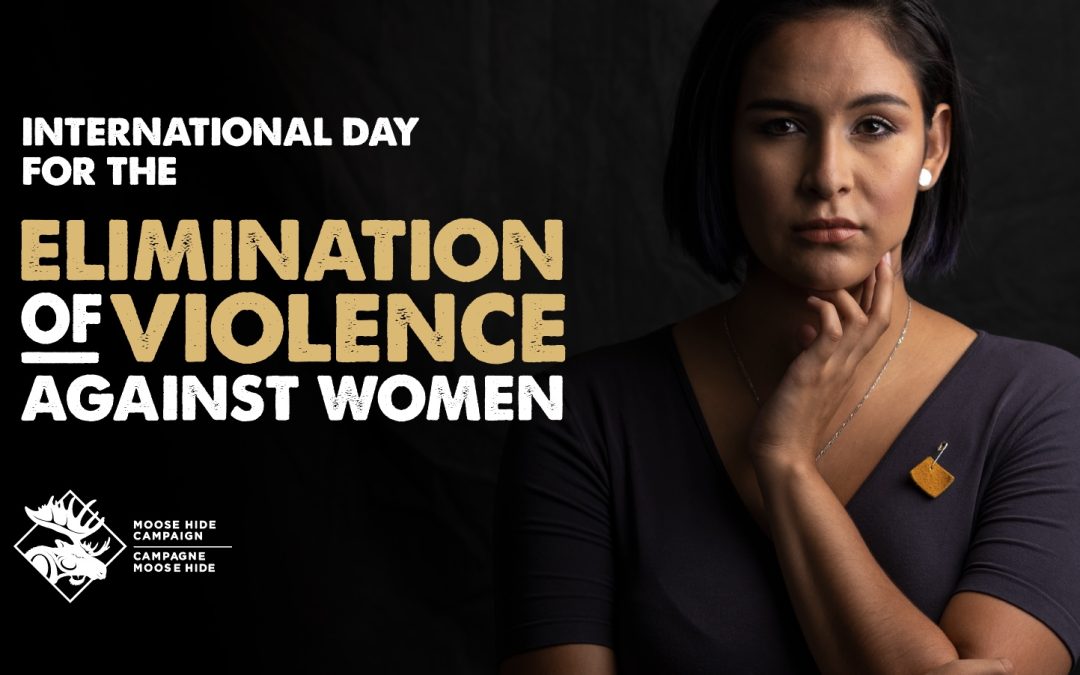Every year, from November 25 to December 10, people around the world come together for the 16 Days of Activism Against Gender-Based Violence, a campaign to eliminate all forms of violence against women and girls. This movement, initiated by UN Women, bridges the International Day for the Elimination of Violence Against Women (November 25) and Human Rights Day (December 10)—a poignant reminder that gender-based violence is a fundamental violation of human rights.
In Canada, this global campaign carries profound weight, particularly for Indigenous women, girls, and Two-Spirit people, who face disproportionate rates of violence. By participating in initiatives like the Moose Hide Campaign, we can take meaningful steps to address this crisis, support survivors, and advocate for justice.
The History of the 16 Days of Activism
Women’s rights activists have observed 25 November as a day against gender-based violence since 1981. This date was selected to honour the Mirabal sisters, three political activists from the Dominican Republic who were brutally murdered in 1960 by order of the country’s ruler, Rafael Trujillo (1930-1961).
On 20 December 1993, the General Assembly adopts the Declaration on the Elimination of Violence against Women through resolution 48/104, paving the path towards eradicating violence against women and girls worldwide.
Finally, on 7 February 2000, the General Assembly adopts resolution 54/134, officially designating 25 November as the International day for the Elimination of Violence Against Women and in doing so, inviting governments, international organizations as well as NGOs to join together and organize activities designed to raise public awareness of the issue every year on that date.
For Indigenous women in Canada, these 16 days also highlight the ongoing national crisis of Missing and Murdered Indigenous Women, Girls, and Two-Spirit People (MMIWG2S+), rooted in systemic racism, colonial violence, and socio-economic inequities. Reports like Reclaiming Power and Place have shed light on this tragedy, providing calls to justice to address and prevent violence against Indigenous communities.
Walk With Us
The Moose Hide Campaign is a Canadian movement that directly aligns with the goals of the 16 Days of Activism. It began in 2011 when Paul Lacerte and his daughter Raven were hunting on traditional territory near the Highway of Tears—an area marked by the disappearance and murder of many Indigenous women. They created the moose hide pin as a symbol of their commitment to ending violence against women and children.
Since then, the campaign has grown into a powerful national movement, encouraging individuals—particularly men and boys—to reflect on their role in creating safe communities and take active steps toward reconciliation and healing. By wearing the moose hide pin, fasting in solidarity, and sharing educational resources, participants pledge to stand against violence and amplify the voices of survivors.
December 6: A Day of Remembrance
While the 16 Days of Activism address gender-based violence broadly, December 6—the National Day of Remembrance and Action on Violence Against Women—is a particularly solemn and reflective day in Canada.
On this day in 1989, 14 women were murdered at the École Polytechnique in Montreal, targeted solely because they were women. This tragedy shocked the nation and remains a symbol of the destructive impact of misogyny and gender-based violence. December 6 is a time to remember these women and all victims of gender-based violence while recommitting ourselves to ending it.
For the Moose Hide Campaign, this day carries added significance, as it reminds us that the safety and well-being of women are interconnected with the safety and respect of all people. It is a moment to reflect on the systemic changes needed to protect women from violence and to act on those commitments.
Whether you’re new to the Moose Hide Campaign or a long-time supporter, the 16 Days of Activism provide an opportunity to take concrete steps toward change. Here’s how you can make an impact:
Education
- How You Can Take Action During the 16 Days
- Read the Reclaiming Power and Place report, which outlines the systemic barriers and solutions for addressing violence against Indigenous women and girls, delivering 231 individual Calls for Justice directed at governments, institutions, social service providers, industries and all Canadians.
- Explore resources like the NWAC fact sheet on violence against Indigenous women to understand the scope of the crisis and its root causes.
- Deepen your understanding of the MMIWG2S+ crisis by taking the We Are Medicine learning journey.
- Share what you learn with your network to spark meaningful conversations.
- Wear the Moose Hide Pin
The moose hide pin is more than a symbol; it’s a pledge to end violence. Wearing it during the 16 Days—and beyond—shows your commitment to safety, equality, and justice. You can order pins for free through the Moose Hide Campaign’s website and encourage your friends, family, and colleagues to do the same. - Engage in Acts of Solidarity
The Moose Hide Campaign invites participants to fast for a day as an act of reflection and solidarity with survivors of violence. Consider taking part in this powerful tradition during the 16 Days of Activism and encourage others to join you. - Support Organizations Making a Difference
On Giving Tuesday (December 2, 2025), consider donating to the Moose Hide Campaign or organizations supporting MMIWG2S+ families. Financial contributions help fuel advocacy, education, and survivor support services. - Amplify the Voices of Indigenous Women and Two-Spirit People
- Follow and support Indigenous-led organizations and activists who are advocating for change.
- Share their stories, artwork, and calls to action on social media to raise awareness about MMIWG2S+ and the importance of ending gender-based violence.
- Advocate for Systemic Change
Use your voice to call on governments, workplaces, and communities to implement the Calls to Justice outlined in the Reclaiming Power and Place report. This includes supporting legislative changes, increasing funding for survivor services, and addressing systemic inequalities that perpetuate violence.
The Global and Local Connection
While the 16 Days of Activism is a global initiative, its impact is deeply personal. For Indigenous women in Canada, the movement is a lifeline, a chance to spotlight their stories, and a call for justice. By participating in the Moose Hide Campaign, you join a growing community of individuals committed to action—not just during these 16 days but every day.
The 16 Days of Activism remind us that violence against women and girls is not inevitable—it is preventable. By engaging with the Moose Hide Campaign, we take a stand for Indigenous women and girls, amplify their voices, and demand the systemic changes needed to create safer communities.
This year, let’s move beyond awareness and into action. Wear your moose hide pin, educate yourself and others, and commit to ending violence against all women and children. Together, we can create a future where everyone is safe, valued, and free from violence.
🔗 NWAC Fact Sheet: Violence Against Aboriginal Women: nwac.ca
🔗 Read the Reclaiming Power and Place report: mmiwg-ffada.ca/final-report
🔗 We Are Medicine: wearemedicine.ca

